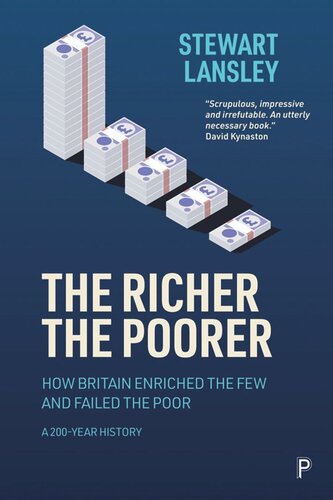

Most ebook files are in PDF format, so you can easily read them using various software such as Foxit Reader or directly on the Google Chrome browser.
Some ebook files are released by publishers in other formats such as .awz, .mobi, .epub, .fb2, etc. You may need to install specific software to read these formats on mobile/PC, such as Calibre.
Please read the tutorial at this link: https://ebookbell.com/faq
We offer FREE conversion to the popular formats you request; however, this may take some time. Therefore, right after payment, please email us, and we will try to provide the service as quickly as possible.
For some exceptional file formats or broken links (if any), please refrain from opening any disputes. Instead, email us first, and we will try to assist within a maximum of 6 hours.
EbookBell Team

4.7
36 reviewsThe Richer, The Poorer charts the rollercoaster history of both rich and poor and the mechanisms that link wealth and impoverishment. This landmark book shows how, for 200 years, Britain’s most powerful elites have enriched themselves at the expense of surging inequality, mass poverty and weakened social resilience. Stewart Lansley reveals how Britain’s model of ‘extractive capitalism’ – with a small elite securing an excessive slice of the economic cake – has created a two-century-long ‘high-inequality, high-poverty’ cycle, one broken for only a brief period after the Second World War. Why, he asks, are rich and poor citizens judged by very different standards? Why has social progress been so narrowly shared? With growing calls for a fairer post-COVID-19 society, what needs to be done to break Britain’s destructive poverty/inequality cycle?